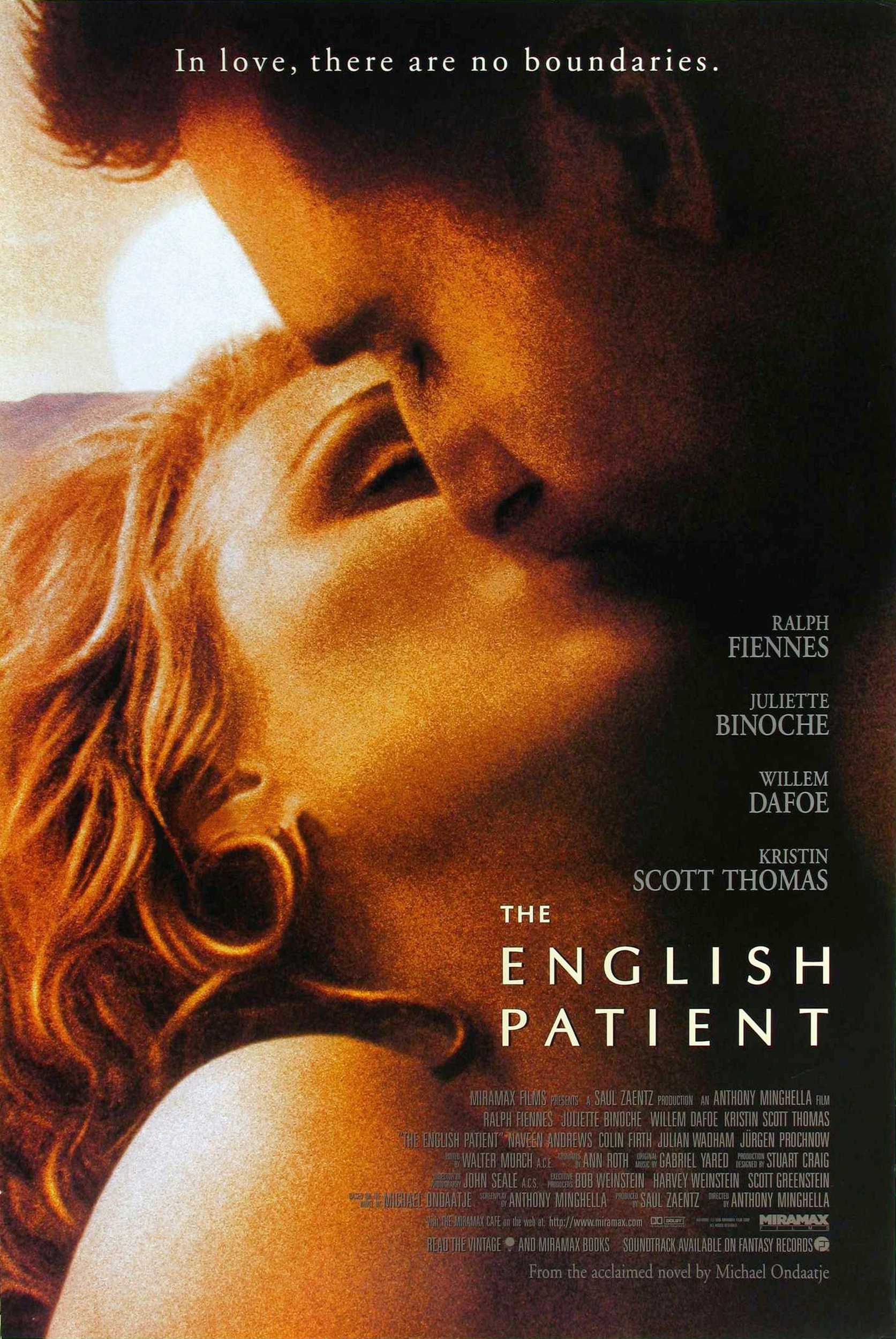
- Golden Globe Awards
1997 – Drama: The English Patient
The late English-Italian director and author Anthony Minghella – who died prematurely in 2008 at age 54 – left us a World War II- based masterpiece: The English Patient, which he himself adapted from Michael Ondaatje’s best-selling novel. The film won the Golden Globe for Best Picture – Drama and went on to win nine Academy Awards. It is considered one of the most romantic, lyrical and poetic war movies ever made.In the final days of the Italian Campaign of World War II, Hana (Juliette Binoche), a French-Canadian nurse working and living in a bombed-out Italian monastery, looks after a critically burned British officer (Ralph Fiennes) who can’t remember his name, but who gradually reveals his past, including a fateful love affair (with Katherine, played by Kristin Scott-Thomas).At the 54th Golden Globe Awards, held on January 19, 1997, The English Patient also won for Best Original Score (by Gabriel Yared). The other nominated films (Drama) were The People vs. Larry Flynt, Secrets & Lies, Shine and Breaking the Waves. Scott-Thomas was nominated for Best Actress (Drama), but Brenda Blethyn won for Secrets & LiesGeoffrey Rush for Shine (also duplicated at the Academy Awards). At the Globes Minghella was nominated for Best Director, but Milos Forman won for Larry Flynt (Minghella instead won the Oscar).The film was shot in Italy (at the Cinecitta’ studios in Rome, and in various locations in Tuscany) and in the desert of Tunisia. The film’s producer, Saul Zaentz, had been a fan of Anthony Minghella’s first film, Truly Madly Deeply (1990), and had made it clear that he would like to work with the director. He was therefore delighted when Minghella brought him the book by Ondaatje. Zaentz, accepting the Best Picture Award at the Globes – announced by Al Pacino – said: “I want to thank the actors: producers are not supposed to love them, but I do… and Michael’s [Ondaatje] stunning novel, which inspired all of us.”The film was immediately embraced by critics, before becoming a “cult” movie for audiences worldwide. Roger Ebert wrote: “It’s the kind of movie you can see twice: first for the questions, the second time for the answers”.